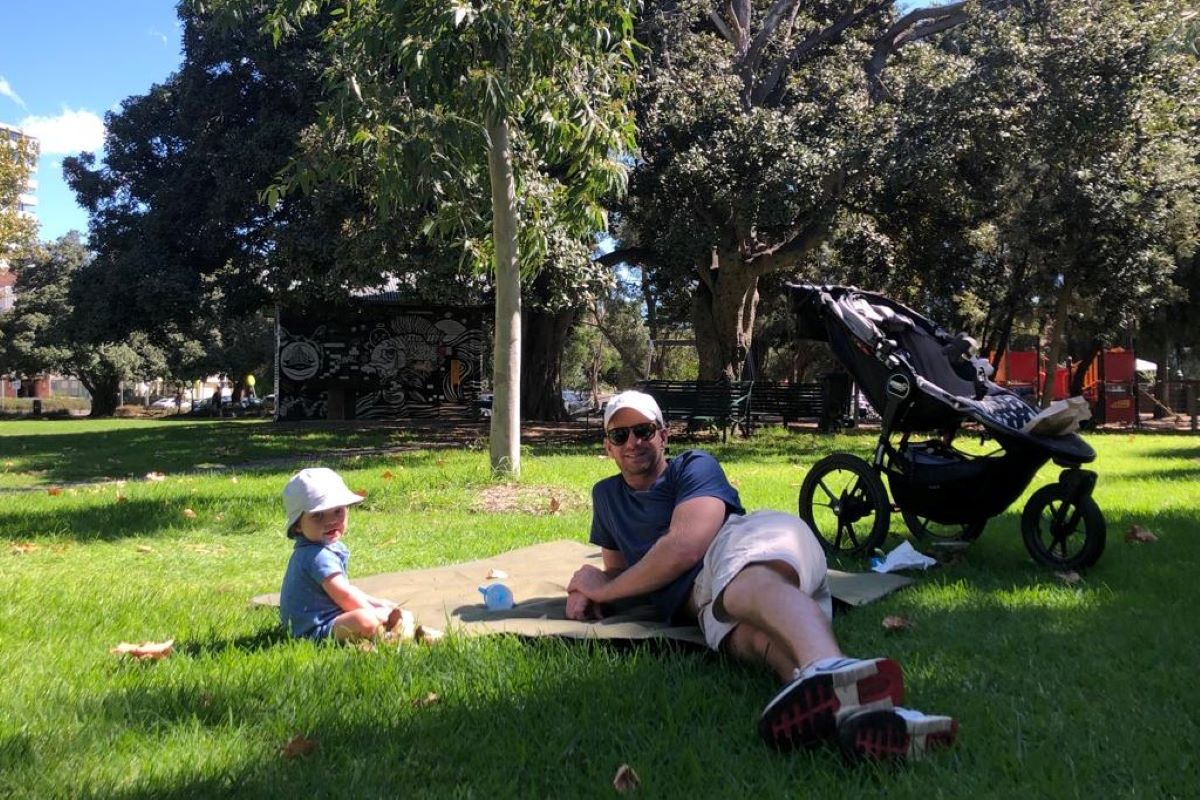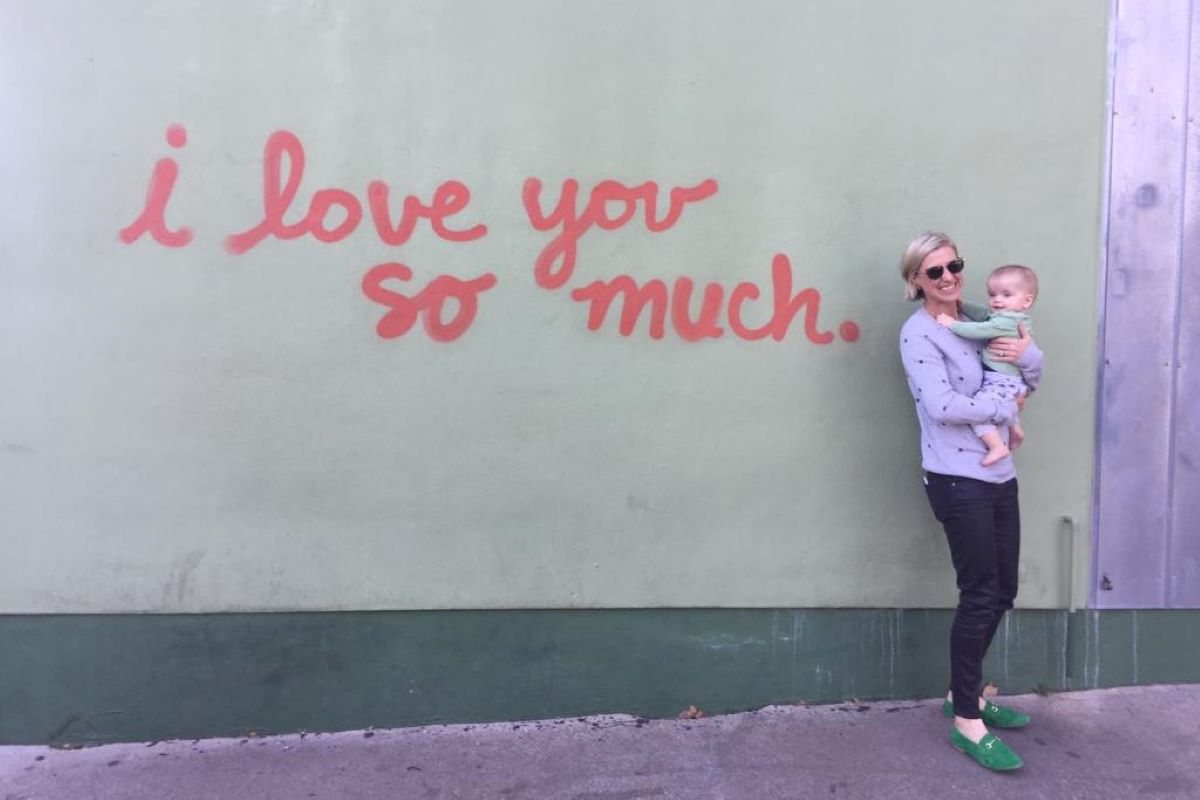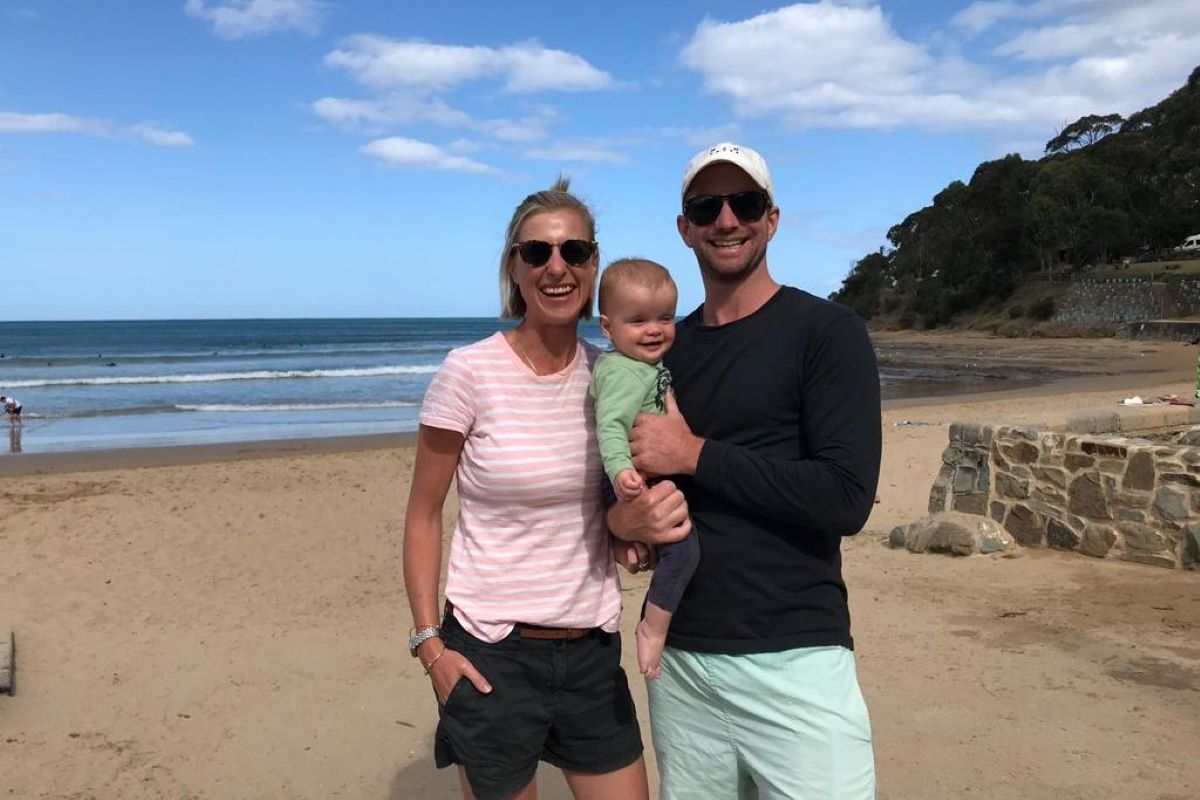When PwC director Mark (Les) Leslie and REA Group senior marketer Georgie Leslie took shared parental leave after the birth of son Jimmy, they weren’t prepared for the many profound life lessons they would learn and the impact this would have on their role as corporate leaders.
This powerhouse couple share their story and prove that done right, parental leave can strengthen family bonds, encourage personal growth, smash gender biases and ultimately build greater leaders.
Mark
Can you tell us about your career journey so far?
I’m a director in PwC’s value creation in deals business, which works with our clients who are pursuing M&A agendas, i.e. buying or selling all or part of a business. I’ve been with PwC for eight years, joining straight out of business school. Prior to this I was with Macquarie Group.
Congratulations on being the proud dad of a gorgeous boy. How has becoming a dad changed your perspective on life?
I’m conscious of overplaying how profound being a parent has been on me personally as it’s a pretty well-trodden path, but wow!
For us, having a family wasn’t necessarily a must-do, so it was something we gave a lot of thought to. I can’t express just how glad I am that we were lucky enough to be able to have a family.
The two biggest changes for me have been the relativity when prioritising what is ‘critical’ versus ‘nice-to-have’ or just ‘noise’, be that work related or otherwise. The unexpected change for me was an increased level of social conscience, which I guess stems from the realisation that we really are leaving this world to the next generation and we should all be taking better care of it and its inhabitants while we are here.
The relativity realisation landed for me when our son Jimmy was born with a rare condition called craniosynostosis. I won’t go into the details, but it’s pretty crazy. Basically he ended up having an eight-hour operation to rebuild his skull to create room for his brain to develop. Whilst I wouldn’t wish this upon anyone, the experience has made us cherish him even more and was galvanising in terms of our marriage. It would be remiss of me to not take this opportunity to give a shout out to our Maternal Child Health Nurse and team at the Royal Children’s Hospital in Melbourne for their extraordinary work and support through a really challenging time for us.

You were a stay-at-home dad for five months, which also helped your wife, Georgie, return to work. What did you learn?
I understand I had the easier of the two shifts by taking over at eight months: sleeping through (mostly), no breastfeeding, interactive play, and it coincided with the summer months.
During my time with Jimmy I learnt three main things:
Firstly, kids force you to be in the moment. I was surprised at how much I enjoyed just sitting with him on the play mat or in the park with nowhere else to be. If I had to try and sum up full-time care for a child of this age on a matrix, I’d say on one axis it is high commitment and on the other it’s low stress. The commitment reflects that as soon as they wake it triggers a chain of events (e.g. change, feed, play) that you can’t just defer to later. Whilst it can be stressful when they seem to be crying inexplicably, you generally know that it will all be OK and you have the time to try and solve the problem.
The second thing, is just how quickly the days go by and how little disposable time you have in a day. I remember when Georgie was full-time at home, I would leave for work and ask her if she could pick up dry cleaning or go to the post office and she would say, “I’ll see how I go.” I would walk to the tram and think, What else are you doing? But I get it now.
Before I took over I wrote down some principles that I wanted to live by while I was on leave, they were:
- Read one business article a day
- Meditate every day
- Stay off my phone while Jimmy is awake
- Cook a new recipe every two weeks
- Exercise four times a week
I thought the top two would be the easiest and they actually turned out to be the ones that I didn’t get anywhere near achieving.
The third learning was just how far we have to go if equality is the ultimate goal—the biases run so deep in our society and in some cases are perpetuated by those who are the full-time carer through hoarding the responsibility in an attempt to be the ‘perfect parent’.
People would say things like, “You are a good dad for giving Mum a break this afternoon,” or as I whipped out Jimmy’s lunch, “Does Georgie prepare all his meals before she goes to work?”, or my favourite that Georgie got asked a couple of times: “How does he know what to do with Jimmy?”.
Did you find it hard to return to work after five months away?
The piece we weren’t prepared for was all the logistics of pick-ups and drop-offs, not to mention the bugs kids pick up from childcare that throw the best laid plans into ruins.
It probably took a couple of weeks to get into the swing of work, but there’s nothing like being busy to snap you back into gear.
I would encourage people to spend some time capturing their priorities and non-negotiables before they return, and having a series of conversations with their manager and broader team so everyone is aligned on timing and commitments. I probably could have done this better. I just dropped in and was like: “I’m back and ready to go,” — when perhaps I wasn’t, or at least not in the same way I used to be as I now have pick-ups and bathtime to add into my schedule.
I also think that for anyone who has taken extended time away from their job, there’s a period of rebuilding confidence. In those first couple of weeks I was far less efficient in my interactions, there was a fair bit of re-reading emails over and over to make sure I still knew what I was doing.

As a leader and a role model for many others at work, how has this experience made you a better leader?
I feel like it has given me more balance and perspective, which has not only helped me connect and empathise with working parents but appreciate the commitments that other staff have that are equally important to them.
It has also helped me realise that it is incumbent on all leaders to support policies through to practice.
I naively thought that if the policy was there for many of our employee initiatives then that was the important thing. But I’ve learnt that without leaders living and supporting our people to access these policies then they are pretty redundant.
Many men are worried about the impact that taking parental leave will have on their career. What is your advice to other dads who are considering parental leave?
In short, a career is a long time and that early phase of childhood comes and goes pretty fast. That next bonus, promotion, performance review may seem like a huge priority, but in reality, five months or even a year is an insignificant amount of time and goes by in the blink of an eye. I’ve been back for about three months now and I bet most people have forgotten that I was ever away.
How are you using the flexibility available to you, now that you are back at work?
It’s great that PwC have an ‘all roles flex’ policy that gives me the confidence to set out my week so I can manage the pick-up through to bedtime shift or morning drop-offs. I’ve taken some days to care for Jimmy when childcare options have changed at the last minute.
It feels like I’m in a pretty good rhythm at the moment of leaving early (or arriving a little late) when needed and then getting back online later on to ensure I don’t become the bottleneck in the team.
You both have senior roles. How do you practically manage the juggle of family and work?
We usually plan a couple of days ahead for who is going to do what each day, and the calendar on our phones is an absolute saviour. We certainly aren’t eating out as much as we used to—but I don’t think any of our friends are either, given most of them have young families, so at least we aren’t missing out!
Georgie
Can you tell us about your career journey so far?
I’ve spent my career working in marketing roles within digital and media businesses, including travel brand Lonely Planet and most recently REA Group (owner of realestate.com.au).
How was your experience of parental leave?
I was surprised at how much I enjoyed my time away from work. I’ve always loved the intellectual challenges that the corporate world provided, so I was definitely nervous that I would become bored stepping out of this environment.
After watching many of our friends have children before us, it was clear that being the primary carer was going to be challenging in its own right. But I had also heard about people choosing to go back to work earlier than they’d originally planned because they were bored. I was surprised by how much I liked the change of pace that being a full-time parent provided. I was forced to slow down and change my expectations of what I could achieve in each ‘day’—in fact, one of the best pieces of advice I received was to keep in mind that my ‘working day’ was now 24 hours.
It certainly took me some time to adjust to, and perhaps accept, the new pace and focus of my days, but once I did, I found I was far more content and able to be more measured about what I should and shouldn’t spend time worrying about. I’ve attempted to keep this mindset after returning to work as a way to maintain perspective on what matters to me.
Did having Mark as a stay-at-home dad make the transition back to work easier for you?
Without a doubt, my transition was easier compared to what I’d seen friends and colleagues go through. I had zero concerns about our son’s welfare as I walked out of the house each morning.
While there were moments where I was slightly jealous of them spending time together without me(!), on the whole I was excited for Les to be with Jimmy in the way I had for the first few months.
I also cannot underestimate the impact Les having the experience as the primary carer has had on our shared understanding of the behind-the-scenes work of what needs to be done to keep Jimmy healthy and happy.
Les has as much knowledge on this as I do, so it has never been a case of me having to ‘teach’ him.
Having a child can really affect your sense of self. Did you experience this?
One of the things I found most challenging—and I that I wasn’t expecting—was the impact that the physical changes associated with having a child had on me mentally.
I was lucky enough to have a fairly standard pregnancy. However, I really struggled with how different I felt in the first few months after giving birth and the limitations of my body to be able to do what I could previously. I think this was due to a combination of having an emergency caesarean, breastfeeding, and severe sleep deprivation.
I love Serena Williams’s identification of breastfeeding as a superpower, however I think the physical and hormonal impact it has on your body is not spoken of enough.

It can often feel like having kids and a career are mutually exclusive. What do you think?
Before having Jimmy I would have agreed with this statement to a certain extent, certainly watching friends and colleagues manage the ‘juggle’ (and often seeing the woman’s career being put on hold).
However, I now believe that it is more about recognising what it is about work, or a career, that you derive value from. And similarly, about what you value from the way you live your life in general.
Perhaps that is why I enjoyed my time away from work more than I expected as it forced me to step out of the day-to-day and enabled me to identify what I did and didn’t miss.
I really don’t like the term ‘work-life balance’. I would prefer if we were able to just talk about ‘life balance’ and work is one element of the bigger picture. As a friend of mine who has three children said, the key to having a balanced life—whatever role work-life plays in it—is to not expect that you can do everything 100%. If you aim for 70-80%, you are usually pretty happy with how things turn out!
Your employers offer generous paid parental leave for both mums and dads. Why is it so important for organisations to support their working parents?
We both feel so lucky to have had the support of our workplaces and acknowledge that this more than anything made our decision to share the parental leave between us a fairly easy one.
The impact of a supportive employer cannot be underestimated from both a financial and emotional point of view. I hope that this type of question becomes irrelevant in 10 years’ time (could we aim for five?), but there is still a really clear difference today between the expectations for men and women when it comes to working and child rearing in Australia.
I liked telling people a couple of years ago that both my manager and one of my direct reports were on extended parental leave at the same time. This in itself is not an interesting story, but when I added the detail that they are both males, it would always solicit a response of surprise.
Two years on, men taking parental leave at REA Group has been normalised. Returning to work earlier this year for me was so much easier to do with the knowledge that so many of my colleagues had, or will in the future, go through the same thing.
What advice would you have for other parents who are both thinking about taking extended parental leave?
I couldn’t encourage it more highly. It is such a rare opportunity and one that you won’t regret. If you are highly ambitious with your career it can feel like a big step to ‘check out’ for a few months, however in reality it is such a short amount of time. When I felt anxious about this I would think about the number of times colleagues would return to work after parental leave and I would share my surprise that they were back already!







